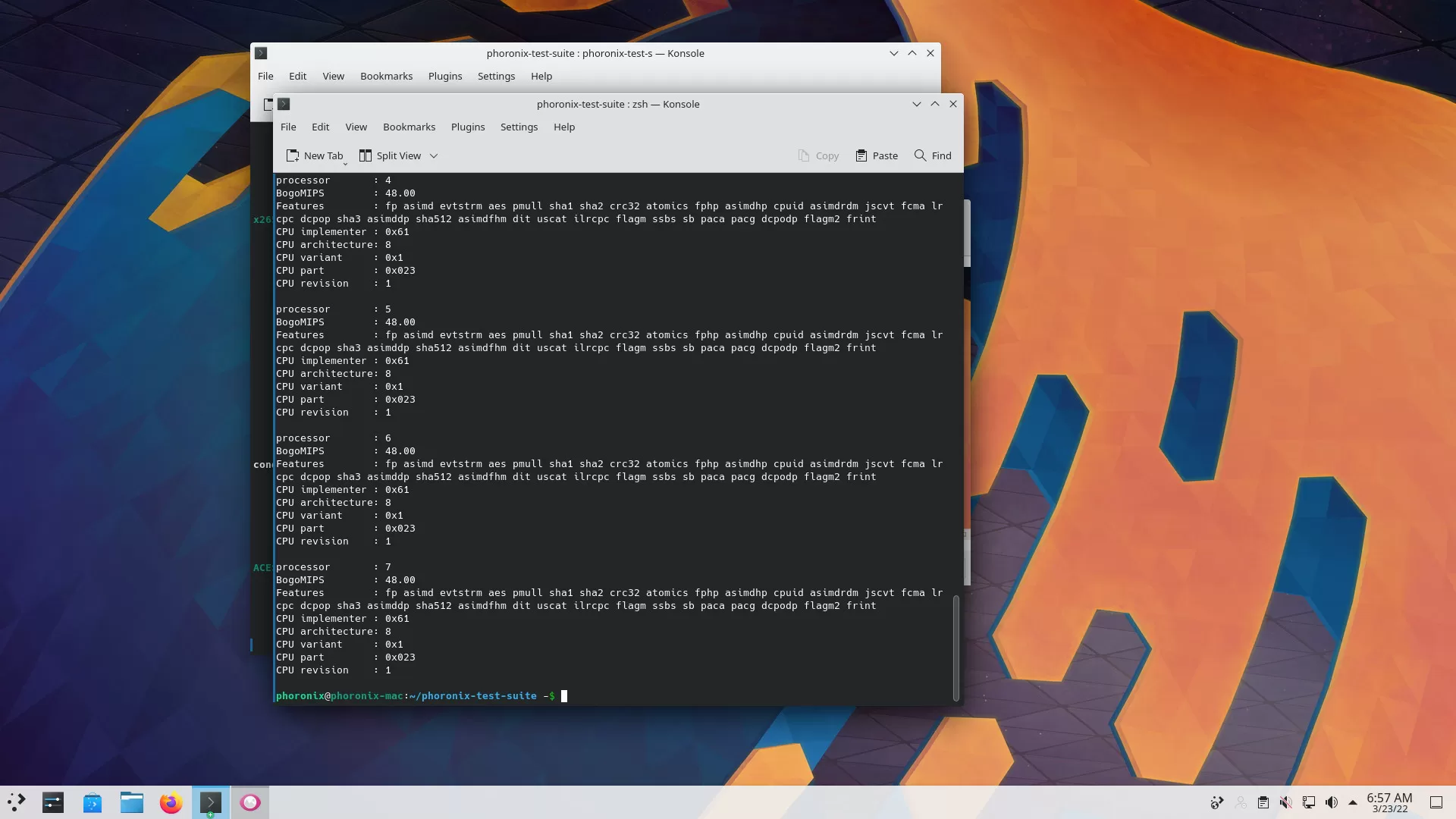
Linus Torvalds just released Linux 5.19 as stable for the newest version of the Linux kernel. He also mentioned this is the first time he released the new Linux kernel from an ARM64 laptop in the form of an Apple MacBook running an AArch64 Apple M1 SoC.
Linux 5.19 brings many new features from initial LoongArch CPU support to continued work on bringing-up AMD Zen 4 CPUs, AMD RDNA3 enablement continuing, more work on Intel DG2/Alchemist, Intel Idle driver support for Alder Lake, initial Raptor Lake P graphics support , Zstd compressed firmware, and some nice performance improvements.
AsahiLinux
In today’s Linux 5.19 release announcement, Linus Torvalds went on to write about his Arm-based MacBook usage now under Linux thanks to the work of the Asahi Linux project:
On a personal note, the most interesting part here is that I did the release (and am writing this) on an arm64 laptop. It’s something I’ve been waiting for a _loong_ time, and it’s finally reality, thanks to the Asahi team. We’ve had arm64 hardware around running Linux for a long time, but none of it has really been usable as a development platform until now.
It’s the third time I’m using Apple hardware for Linux development – I did it many years ago for powerpc development on a ppc970 machine. And then a decade+ ago when the Macbook Air was the only real thin-and-lite around. And now as an arm64 platform.
Not that I’ve used it for any real work, I literally have only been doing test builds and boots and now the actual release tagging. But I’m trying to make sure that the next time I travel, I can travel with this as a laptop and finally dogfooding the arm64 side too.
More commentary can be found via the release announcement.
Linus Torvalds also noted he will likely end up calling Linux 5.20 as the Linux 6.0 kernel.
See my Linux 5.19 feature overview for a full list of the major feature changes in this new kernel.
.
